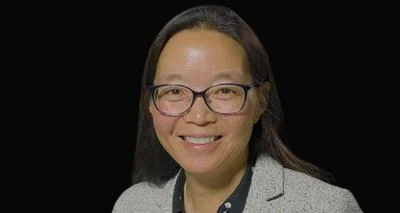Alan Kaplan, Chief Executive Officer | U. of Wisconsin Hospital and Clinics
Alan Kaplan, Chief Executive Officer | U. of Wisconsin Hospital and Clinics
A virtual nursing program introduced in July 2024 at the Neonatal Intensive Care Unit (NICU) of American Family Children’s Hospital has reduced first-year turnover among new nurses to zero, according to hospital staff. The NICU, which is classified as Level IV and cares for the most medically complex patients, previously experienced a 38% turnover rate for new-to-practice nurses between 2021 and 2023. Nationally, about 32% of new nurses leave their positions within the first year, based on a 2025 Nursing Solutions report.
Morgan Kuhl, a NICU nurse at UW Health Kids and one of the program’s leaders, described the challenges facing new nurses in this environment. “We are extremely proud of the early success of the program because coming out of nursing school, it can be overwhelming to care for this precious and incredibly vulnerable population,” she said. “Everything you do as a nurse at the NICU must be done with such precision, and the treatments given to these babies will impact the rest of their lives.”
The initiative was started by Kuhl along with Grace Long and Hailey Madson, who together have nearly two decades of experience in neonatal intensive care. Each virtual nurse works two six-hour shifts per week from home using secure laptops to connect with bedside nurses via tablet computers on the unit. The team also continues to work in-person shifts. Of approximately 70 NICU nurses at American Family Children’s Hospital, around 15 are currently being mentored by the virtual team; however, any nurse can access support as needed.
Grace Long highlighted that virtual check-ins help provide emotional support and practical guidance during busy times or difficult situations: “Oftentimes, families are not expecting to be in the NICU and this is their first major interaction with the health care system, which can be traumatic and frightening," Long said. “With these virtual check-ins, we can take the time to talk with new nurses about how to handle that, or we can simply listen if they’ve had a tough day.”
Hailey Madson noted that both patient numbers and case complexity have increased since she joined eight years ago: “I have been here for eight of the 11 years, so I’ve seen the growth firsthand,” Madson said. “Patients are also getting more and more complex, so the nurse team needs to be even more prepared to meet the challenge.”
The program has expanded several times since its launch. Virtual nurses now communicate remotely with families about admissions and expectations during their stay. New nurses continue to work closely with preceptors for hands-on mentorship but may turn to virtual staff when preceptors are unavailable due to workload.
Virtual meetings without patient assignments allow detailed discussions on clinical procedures such as changing dressings or managing mechanical ventilation. Supplementary PowerPoint presentations developed by virtual staff provide additional educational resources beyond standard orientation toolkits.
In recognition of September as NICU Awareness Month—which honors both patients’ families and specialized caregivers—the hospital’s virtual nursing team recently presented their approach at a national conference in Washington.
Long emphasized what makes her work rewarding: “Watching a parent hold their baby for the first time, or seeing a baby go home thriving after we weren’t sure if they were going to make it, is rewarding,” she said.





 Alerts Sign-up
Alerts Sign-up